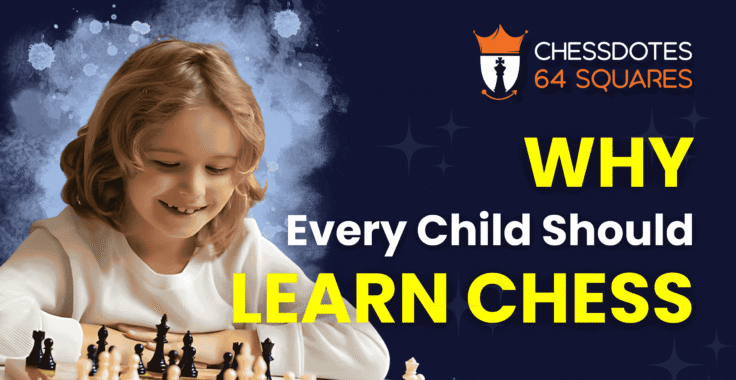
“Chess is the gymnasium of the mind.” – Blaise Pascal
At Chessdotes 64 Squares Academy, we are often asked by parents: “Is chess really beneficial for my child?” The answer is absolutely yes—and it’s not just about improving their game. Chess teaches children powerful life skills that go beyond the board and into the classroom, home, and future.
Here are 10 key life skills your child develops through chess—and how you can support their growth at home.
1. Developing Critical Thinking
Every move in chess has consequences. Children quickly learn to evaluate choices, anticipate results, and plan ahead. This builds critical thinking and logical decision-making skills. After a game, ask your child, “Why did you move your knight there?”—you’ll hear thoughtful reasoning unfold.
2. Improving Focus and Concentration
A single lapse in focus can lead to a mistake in chess. With regular play, children naturally build their concentration and attention span—skills that improve school performance as well. Try a quiet 10-minute chess challenge at home and observe their engagement.
3. Boosting Memory
Chess involves remembering opening moves, tactics, and patterns. This strengthens both short- and long-term memory. Chess-playing kids often perform better in academics because of their enhanced recall and cognitive discipline.
4. Teaching Patience and Perseverance
In a game where wins take time and strategy, patience is a must. Children learn to wait for the right move, bounce back after a loss, and keep improving over time. These lessons in perseverance carry over into real life.
5. Encouraging Creativity
Chess isn’t just a logical game—it’s a creative one. Kids often invent their own tactics, set traps, and surprise opponents. Encourage your child to name a new move or create their own opening variation. It’s a fun way to foster creative thinking.
6. Enhancing Problem-Solving Skills
Each game presents a unique challenge. Children learn to identify problems, adapt quickly, and find solutions. Try solving a “chess puzzle of the day” together—it’s a great family activity that trains the brain.
7. Making Smart Decisions Under Pressure
Fast-paced games like blitz chess help children make quick decisions with limited time. It improves their ability to stay calm under stress—an essential skill for exams and real-life challenges.
8. Goal Setting and Achievement
Chess is filled with mini-goals: capture a piece, defend the king, set a trap. Children learn to plan and work toward objectives. Setting weekly chess goals—like “solve 5 puzzles” or “play 3 error-free games”—builds a success mindset.
9. Building Sportsmanship and Respect
At Chessdotes, we teach every student to shake hands before and after games. This habit of showing respect, regardless of outcome, builds emotional maturity and character. Encourage your child to always say “Good game”—win or lose.
10. Instilling Self-Discipline
Chess rewards consistency. Kids who play regularly learn the value of practice, study, and self-improvement. Establishing a regular “chess hour” at home can help build discipline and focus that carries over into other areas of life.
Final Thoughts: More Than a Game
Chess is more than just kings and pawns—it’s a builder of character, mindset, and intelligence. At Chessdotes 64 Squares Academy, we’ve seen kids transform into sharper thinkers, calmer learners, and more confident individuals.
Whether your child wants to compete or simply learn for fun, chess is a timeless gift of life skills.
Enroll Today and Watch the Transformation Begin
Book a FREE Trial Class – Click here to enroll now

